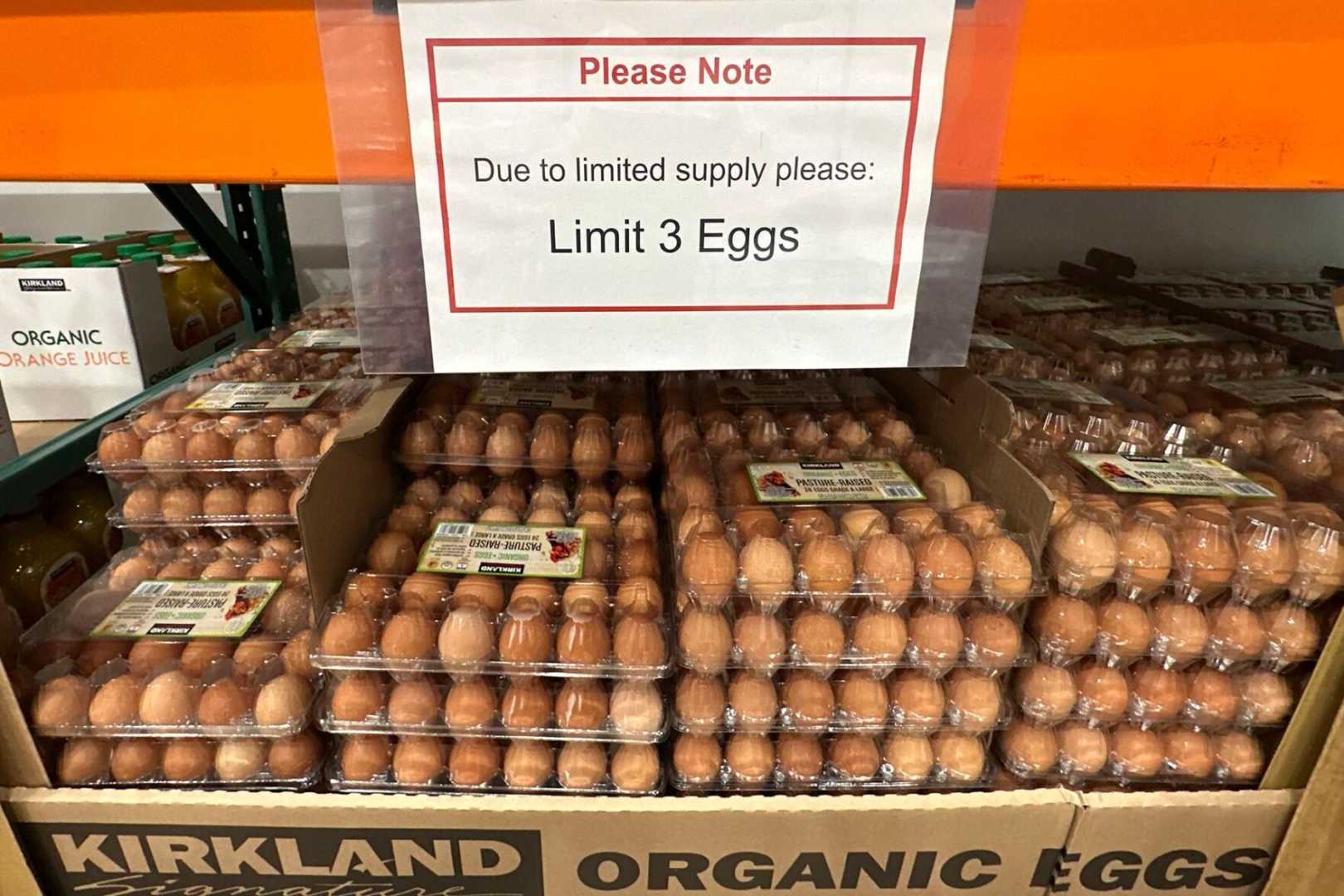Business
Egg Prices Drop as Supply Stabilizes After Shortage

NEW YORK — The egg crisis in the United States appears to be easing as prices decline. According to the U.S. Department of Agriculture, wholesale egg prices fell to $3.00 per dozen last week, marking a 9% decrease from the previous week.
In their latest weekly report, the USDA stated, “The supply situation at grocery outlets has greatly improved in recent weeks, and consumers are once again seeing fully stocked shelves and enjoying a range of choices without purchase restrictions.” This news comes after months of egg shortages and skyrocketing prices that reached a 10-year high of $5.90 per dozen in February.
Despite the ongoing impact of avian flu on the poultry industry, which has affected 30 million egg-laying birds this year, experts indicate that conditions are improving. Bernt Nelson, an economist at the American Farm Bureau Federation, attributed the price decrease to “a sharp decrease in cases of avian influenza,” reporting just 2.1 million birds impacted in March, down from 23 million in January.
“America’s poultry farmers have put in the work to tighten biosecurity and they’ll continue to strive to protect their flocks,” said Nelson. The decline in prices also correlates with reduced consumer demand as shoppers became frustrated with the high costs.
Stew Leonard, Jr., owner of the Stew Leonard’s grocery store chain, corroborated the trend, stating, “We’re back to low-price eggs again. There seems to be plenty of supply.” Leonard noted he previously sold eggs for $10 a dozen in December, but prices have now dropped to $5.99 in his stores.
Despite the positive developments, the USDA cautioned that it could take weeks for declining wholesale prices to affect retail prices. “Only now are we starting to see shelf prices slowly decline,” the report indicated, adding that demand for egg products remains weak as manufacturers leverage the current market to build production levels.
While some grocery stores have lifted restrictions on egg purchases, others continue to enforce limits. For instance, Costco has set a limit of three cartons per customer, and one Whole Foods in Manhattan continues to advertise purchase restrictions despite a fully stocked display.
The political arena has also taken note of the declining prices. President Donald Trump recently claimed credit for the price reductions, stating, “We got it down.” He highlighted his administration’s $1 billion investment to combat avian flu, coinciding with the timing of the price drop in late February.
Despite the decreasing trend, it is worth mentioning that prices on eggs remain historically high. The Consumer Price Index revealed that egg prices soared 58.8% compared to last year, with a monthly increase of 10.4% from January to February. This trend underscores a challenging market for consumers over the past year but also presents hopeful signs of recovery.












